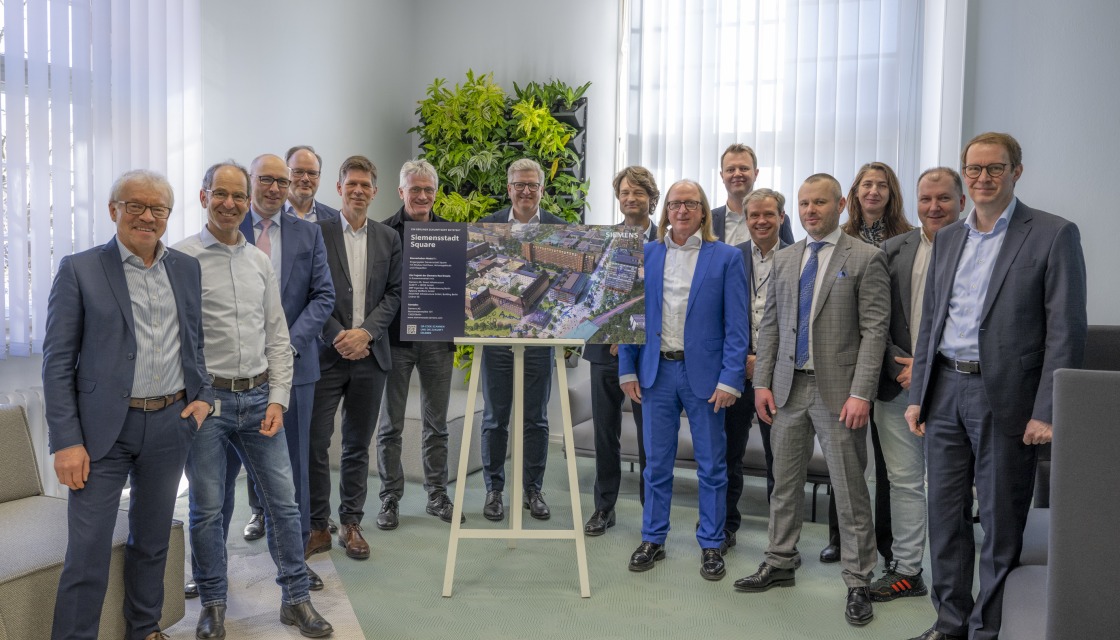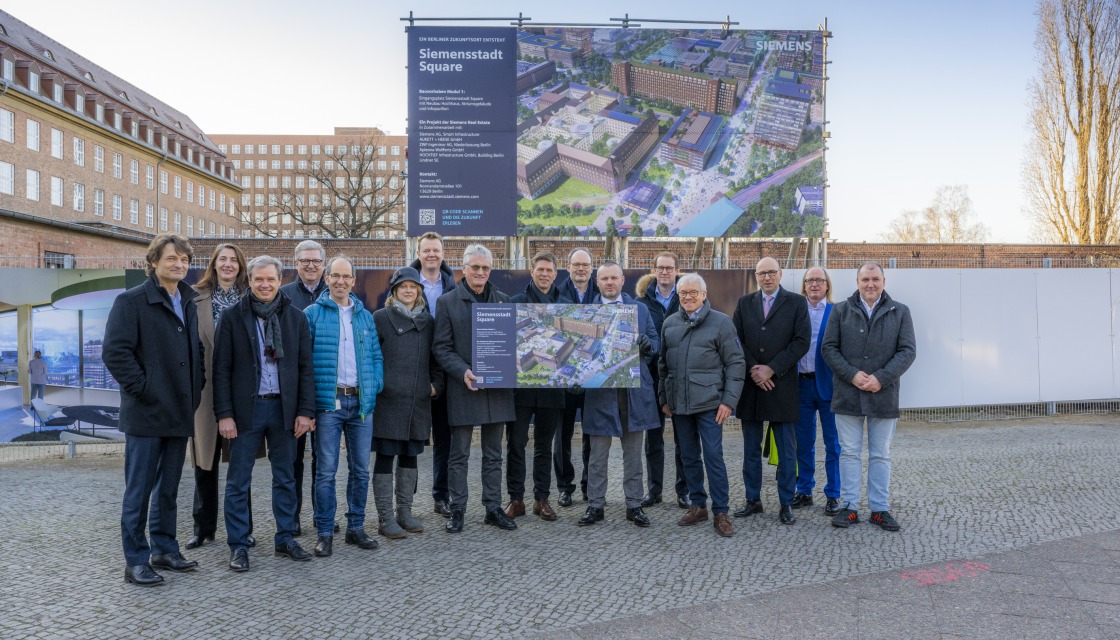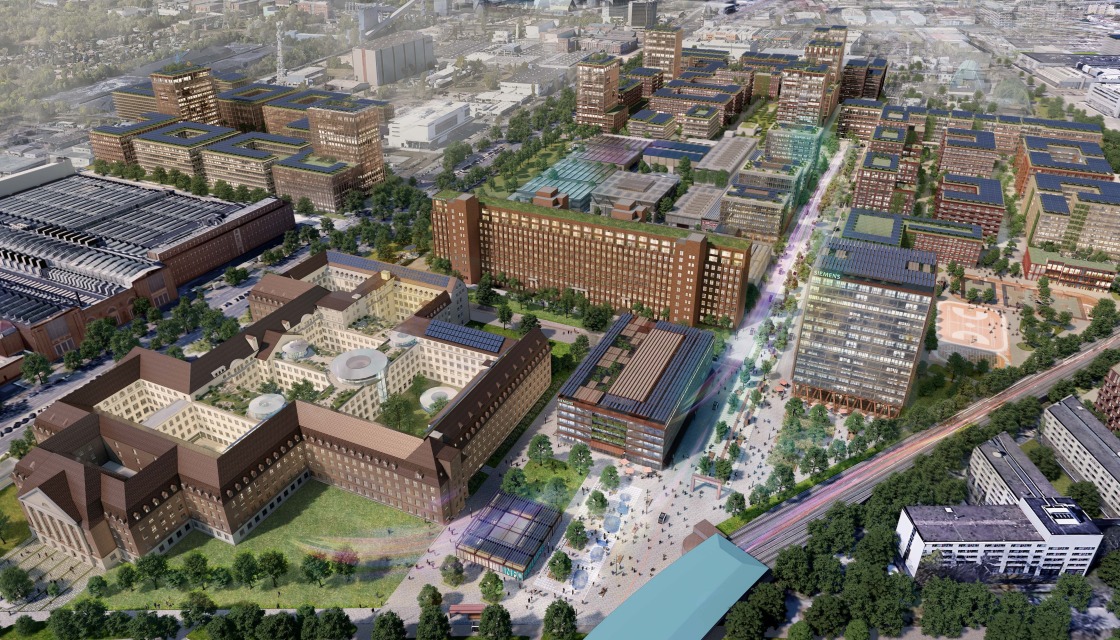Multi-party contract was signed

With the signing of a multi-party agreement in the beginning of March 2023, the visionary district opted for a particularly innovative approach to project development and thus achieved an important milestone. This agreement laid the formal foundation for the further planning and construction of the first new buildings in the future entrance area. In addition to around 20,000 square metres of open space and outdoor facilities, two new buildings - an atrium building with approximately 15,000 square metres of gross floor area (GFA) and a high-rise building with approx. 27,000 square metres of GFA - will be built here, together with a publicly accessible information pavilion. Construction is scheduled to begin in spring of 2024.
Partnership for project success
The signed multi-party agreement differs fundamentally from usual procedures in which numerous individual contracts are concluded with the respective companies. This is because all important partners are involved, from planning to implementation and from the very outset. This serves not only to significantly improve transparency, but it also ensures that all contractual partners are jointly responsible for the overall success of the project.

In addition to the building contractor Siemens Real Estate (SRE), the contract was also signed by Siemens Smart Infrastructure (building technology), Aukett+Heese (object planning), ZWP (technical building equipment planning or TGA), Apleona Wolfferts (TGA execution), Hochtief (structural engineering and exterior installations) and Lindner (façades and interior fittings).
The conclusion of the contract was preceded by several months of cooperation in which the project partners developed the basis for further planning and realisation. During the preparation phase the participants committed themselves to common values and principles of cooperation and signed a mission statement that, among other things, propagates openness and transparency as well as respectful and appreciative interaction between all groups. The project team was supported by IPD coaching from Yukon Projects.
Innovative collaboration culture
The multi-party contract was signed as part of a construction method called Integrated Project Delivery - IPD for short. Already established in the Anglo-American world, this type of cooperation is taking on a pioneering role on the German market and is thus making a significant contribution to a new culture of partnership-based cooperation in the construction industry. In the IPD, all participants collaborate on an equal footing with the aim of realising the project. Complex project processes are optimised using lean management methods. Collaborative project work is characterised by a common interest in the success of the project.
Digitally planned and realised
This cooperative approach fits seamlessly into the ongoing digital planning of the overall project, whereby all partners have access to the same data model of the future Siemensstadt Square, the so-called digital twin.
The IPD team has already moved into a joint project office in Siemensstadt Square in close proximity to the future construction site. The office is designed as a co-working space where all participants can work together interactively.
